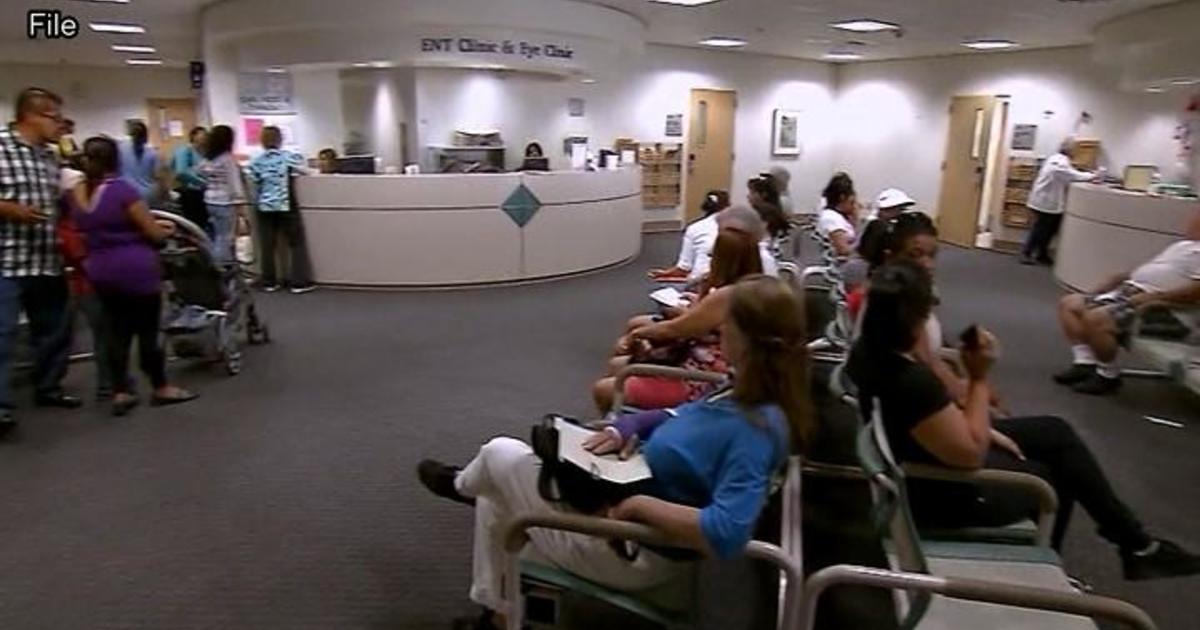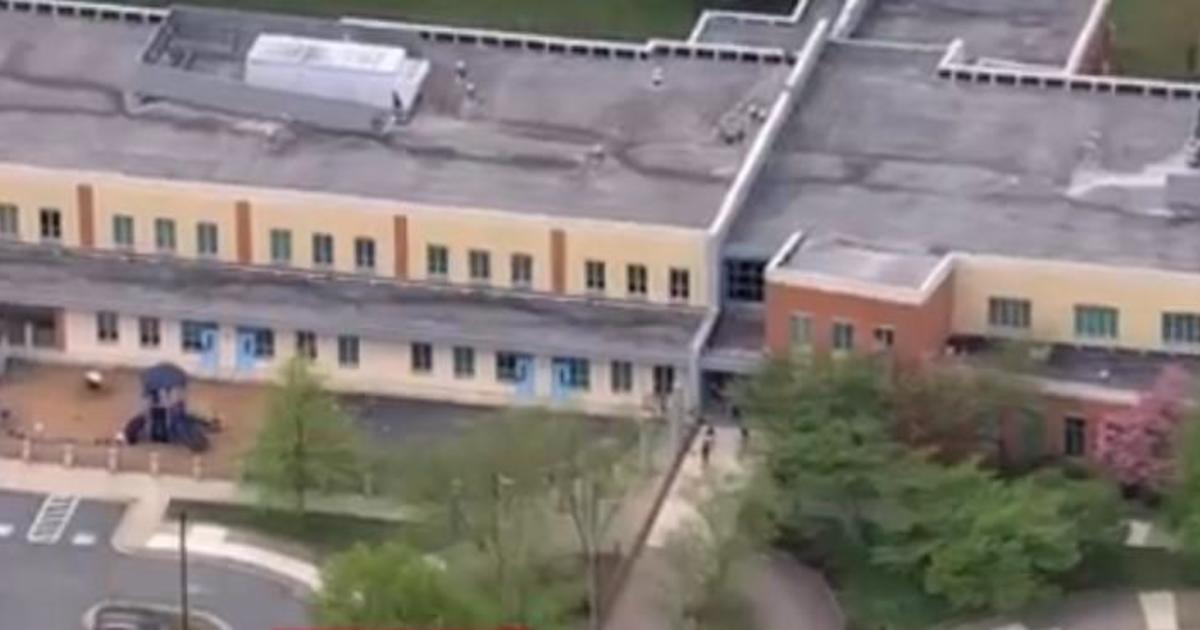Frederick Co. Veterans Adjust To Campus Life
RACHEL KARAS
The Frederick News-Post
FREDERICK, Md. (AP) -- About to graduate from high school without a concrete plan, Meisha Krutar was surrounded by college pamphlets when she heard a friend had joined the military.
It was an option, she thought. It would let her travel. It would help pay for school. It was an intellectual challenge. And as for her friend, "If she could be in the Air Force, I could be a Marine," Krutar said.
Krutar wound up looking into the Navy. She spent seven and a half hours in a recruiter's office, but couldn't commit, and told him she'd weigh the options after getting her college acceptances and financial aid.
The singer, dancer and actress eventually chose the military over a scholarship to The Juilliard School.
Krutar served in the Navy from 2000 to 2012, and retired as a petty officer second class after more than a decade of traveling the globe as an intelligence and cryptology specialist.
The psychology student at Frederick Community College is now one of many veterans trying to bridge the gap between service and campus life in Frederick County.
But for most, connecting with classmates and finding a new normal after years of military discipline is their most difficult mission yet.
Krutar, 31, said returning to civilian life is a "much colder world" than she expected.
"There's an incredible lack of respect that people show their friends, their family, their professors," Krutar said. "None of that sense of camaraderie."
Disrespect and a sense of entitlement are high on the veterans' lists of differences between themselves and students who haven't served.
Because they've grown accustomed to the tightly run military lifestyle, some veterans called their younger classmates lazy and lackadaisical when it comes to getting work done. Nonmilitary students expect classes to cater to their needs when it should be the opposite, the FCC veterans said.
They said it's frustrating when people leave classes with a substitute professor because they know they can't affect their grade, or when a student expects a professor to make adjustments for them.
And when they skip class and miss a test, "they're shocked and downright agitated when they can't take exams later," Krutar said.
"That's a contract. You honor that," Krutar said. "You show up, you give your professor that respect."
Army Staff Sgt. David Nixdorf, 29, said he understands not everyone has the same drive or work ethic as he does. The senior at Mount St. Mary's University served from 2002 to 2009, including three tours of duty in Iraq and one in Afghanistan.
"Most people don't want to step up," he said. "They'll do the bare minimum unless they're pressed to do more."
But if a group mate skips out on a project to go to a bar, Nixdorf does the work anyway.
Sgt. Austin Langdon, who enlisted as a flight medic with the Army National Guard in 2009, said it's difficult to connect with the younger students because veterans are working at off-campus jobs or spending time with family.
Langdon, 30, said that when students and professors ask about his time abroad, they quickly decide they don't want to know.
"They get this faraway look and they try to change the subject," said Langdon, who returned from Afghanistan earlier this year. "They want to stay in their own safe little worlds."
Nonmilitary students should "embrace the fact that they have veterans among them," said Ryan Nicholson, an Air Force veteran at Hood College, who asked that his rank not be included. The 29-year-old from Frederick was stationed in England and Iraq during his service from 2004 to 2009.
Nicholson will talk about his military experience in class so others can learn from it, "as painful as it is to bring some of those things up," he said.
Some said they spend most of their time with other veterans who understand their routine and terminology, while others said it's easier not to dwell on the past.
At Hood, Sgt. Francis Phan spends most days not with veterans, but with students preparing for military life through the ROTC program.
After six years of active duty, Phan is now a ROTC cadet, taking orders from college students a decade his junior. The program will allow him to move from combat support to a combat role as a commissioned officer in the Army, he said.
Phan, who left Vietnam as a political refugee in 1988, and arrived in the U.S. four years later, joined the Army in 2007 as a way to give back to his adoptive country. He served as a chaplain's assistant in Korea and Germany, as well as at Fort Detrick and Fort Eustis in Virginia until this August.
But he still wakes up at 4 a.m. to commute from Manassas, Va., for ROTC, and often doesn't get home until 10:30 p.m.
Sometimes it gets tough, but his mind and body are trained to continue, he said.
"I keep myself that busy because I got used to it for the last six years," Phan, 32, said. "I'm constantly challenging myself to be proactive."
Because of his service, Phan entered the ROTC program as an MS3, or a junior-level cadet. It's a challenge, he said, and he has a tendency to step over the line.
"Sometimes you see something you want to fix but you can't because you have to go through the MS4s," he said. "Now you have to listen to someone who doesn't have the experience you do. ... I see it as a learning experience."
He said his own time as an undergraduate at Saint Xavier University in Chicago makes him more accepting of younger students at Hood.
"They're just being themselves," Phan said. "I do expect to see them making mistakes. ... Students are students."
But in class, it's the veterans who are often playing catch-up on details most students don't give a second thought.
Phan said being a non-native English speaker who hasn't spent much time writing in the past six years makes going back to college even more difficult. It's sometimes hard to follow along in class on open-ended projects without clear direction, he added.
"In the military, they always give you instructions for the next step," Phan said.
Nicholson, who graduated from Frederick's New Life Christian School, said he felt lost at college: he'd never learned formatting for research papers and other skills his classmates knew.
"As someone given all the tools ... it made it extremely difficult to ask for help," he said.
Many veterans credit their school staff with making the transition much easier by assisting with course registration and financial aid. All three schools participate in the Yellow Ribbon Program, which allows them to pay for expenses not covered by the post-Sept. 11 G.I. Bill.
Nicholson, a political science student, said his studies give him something to focus on as well as a level of closure. At the Mount, Nixdorf said he's a better student than if he had gone straight to college from high school.
"I'd have partied, probably left school and accomplished nothing," Nixdorf said. As a business and economics student now, he added, "I'm that guy in the front of the class, paying attention."
At FCC, Langdon hopes to become a physician assistant to use his flight medic skills on the civilian side. The military gave him opportunities that wouldn't have been presented otherwise, he said.
Information from: The Frederick (Md.) News-Post, http://www.fredericknewspost.com
(Copyright 2013 by The Associated Press. All Rights Reserved.)



